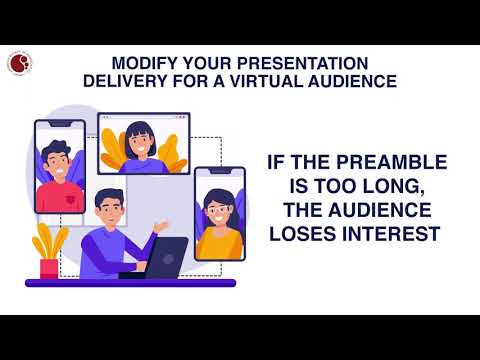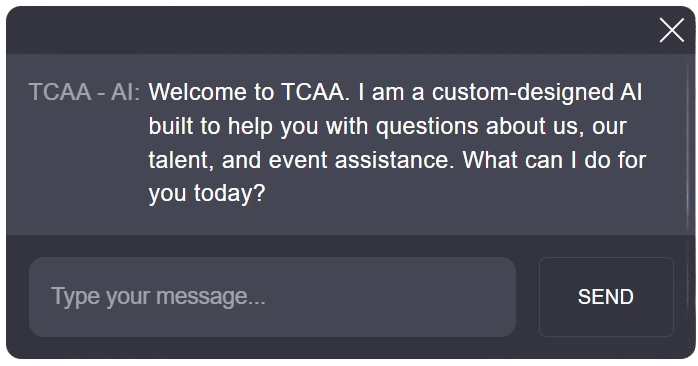Key Components of Successful Virtual Presentations
In today’s digital age, virtual presentations have become indispensable for sharing ideas and engaging audiences. Whether you’re a seasoned speaker or just starting out, mastering the key components of successful virtual presentations can significantly amplify your impact.
Understanding Your Audience
Understanding your audience is crucial. Tailoring your content to their needs and expectations can make or break your presentation. For instance, Vala Afshar from Salesforce often uses polls and Q&A sessions in his virtual presentations. This interactive approach not only keeps the audience engaged but also offers real-time feedback, heightening content relevance.
Crafting a Compelling Narrative
Crafting a compelling narrative is another vital component. Take a lesson from Brené Brown, who deftly weaves personal stories with data-driven insights in her virtual presentations. This blend helps her connect emotionally with her audience while grounding her message in solid research.

Top Strategies for Engaging Virtual Presentations
Presenting virtually comes with unique challenges, but with the right strategies, you can captivate your audience and ensure lasting engagement.
Utilize High-Quality Visuals
Don’t underestimate the power of high-quality visuals. Visual content makes complex information digestible and keeps your audience hooked. Steve Jobs was known for his crisp, evocative visuals in Apple keynotes that complemented his minimalist speech style.
Leverage Interactive Tools
Interactive tools can transform a passive viewing experience into a dynamic one. Platforms like Mentimeter or Slido allow for live polls, quizzes, and real-time audience interaction, much like Simon Sinek’s approach in his virtual leadership seminars.
Incorporate Multimedia Elements
Incorporating multimedia elements, such as videos, animations, and sound bites, can keep your presentation diverse and engaging. TED Talks often use this technique effectively; Sir Ken Robinson’s use of animations to illustrate his points vividly is a prime example.

| Aspect | Description |
| Definition | A presentation delivered through digital platforms, enabling speakers to share content remotely with an audience via the internet. |
| Common Platforms | Zoom, Microsoft Teams, Google Meet, Webex, Skype, GoToMeeting |
| Key Features | High-definition video streaming, screen sharing, real-time chat, breakout rooms, recording capabilities, participant muting, virtual backgrounds |
| Benefits | Broader audience reach, cost-effective, flexible scheduling, easy scalability, real-time interaction, reduced travel expenses, eco-friendly |
| Challenges | Technical issues, limited engagement, potential for distractions, digital fatigue, varying internet connectivity among participants |
| Equipment Needs | Reliable internet connection, webcam, microphone, speakers/headphones, computer/laptop, presentation software (e.g., PowerPoint, Keynote) |
| Preparation Tips | Test technology in advance, use high-quality equipment, rehearse thoroughly, engage audience with polls/Q&A, keep slides visually appealing, manage time effectively |
| Best Practices | Maintain eye contact (look at the camera), use professional backgrounds, dress appropriately, ensure good lighting, limit distractions, follow up with attendees post-presentation |
| Popular Uses | Webinars, online training sessions, virtual conferences, remote team meetings, product demos, client presentations, educational classes |
| Monetization | Subscription models, one-time fees for access, freemium offering with premium upgrades, sponsorships, ad revenue |
Pitfalls to Avoid in Virtual Presentations
While there are many strategies to enhance your virtual presentations, avoiding common pitfalls is just as important.
Overloading with Information
One common mistake is overloading your presentation with too much information. Keeping your content concise and focused is vital. Guy Kawasaki’s 10/20/30 rule (10 slides, 20 minutes, 30-point font) is a great guideline to avoid overwhelming your audience.
Ignoring Technical Aspects
Neglecting technical aspects can derail an otherwise excellent presentation. Ensure a reliable internet connection, a high-quality microphone, and good lighting. Facebook marketing expert Mari Smith emphasizes the importance of a well-prepared technical setup to prevent disruptions.
Lack of Practice
Don’t underestimate the value of practice. Even seasoned speakers like Tony Robbins rehearse thoroughly to deliver seamless virtual presentations. For more tips on practicing, check out these practice public speaking strategies.

Case Studies of Flawless Virtual Presentations
Analyzing case studies of flawless virtual presentations can provide valuable insights.
Microsoft’s Annual Ignite Conference
Microsoft’s annual Ignite conference is a stellar example. The seamless mix of pre-recorded segments and live Q&As, high-quality visuals, and interactive sessions showcases best practices in virtual presenting. Satya Nadella’s keynote addresses often set the standard for virtual presentation excellence.
Oprah’s SuperSoul Conversations
Oprah’s SuperSoul Conversations adapt brilliantly to the virtual format. By fostering an intimate, conversational atmosphere, she maintains emotional engagement, proving virtual presentations can be as impactful as in-person events. For inspiration on crafting such engaging narratives, explore these speaker Notes Examples.

Innovating Your Virtual Presentations
The landscape of virtual presentations is ever-changing. Staying ahead involves not just mastering existing techniques but also innovating with new trends.
One upcoming trend is using augmented reality (AR) or virtual reality (VR) to create immersive experiences. For instance, IKEA uses AR to showcase products in real environments. Another trend is leveraging AI-driven analytics to tailor content dynamically. By analyzing audience responses in real-time, you can adjust your delivery to boost engagement.
The future of virtual presentations is limitless. By adopting innovative strategies and learning from the best, you can deliver talks that inform, inspire, and resonate long after the presentation ends.
In conclusion, mastering virtual presentations involves understanding your audience, crafting a compelling narrative, employing high-quality visuals, and leveraging interactive tools. Avoid common pitfalls like overloading information, ignoring technical aspects, and lack of practice. Case studies such as Microsoft’s Ignite Conference and Oprah’s SuperSoul Conversations offer valuable insights. Stay ahead by innovating with new trends like AR, VR, and AI analytics. Embrace these strategies to deliver virtual presentations that leave a lasting impact.
For further tips on perfecting your public speaking, check out these public speaking Tips. Curious about speaker backgrounds? Learn about Paul Orfaela and Pat Riley’s coaching career. And for those moments of levity, find out which Demon Slayer character you are or dive into crossword wordplay.

By mastering these secrets, your virtual presentations will not just inform but also engage and inspire, securing your place as a sought-after speaker in this ever-evolving digital world.
Virtual Presentation Secrets for Impactful Talks
Engaging Facts About Virtual Presentation
Did you know that the concept of virtual presentations dates back to the 1960s? The development of the first video conferencing systems revolutionized how people communicated remotely, setting the stage for modern virtual Presentations. The innovation was so incredible that it was even used by NASA to connect with astronauts in space. Over the decades, this technology has evolved by leaps and bounds, making virtual presentations an integral part of various professional and personal engagements.
Here’s a fun tidbit: A well-crafted virtual presentation can influence your audience’s decision-making, much like storytelling. Story-driven presentations with compelling narratives and relevant visuals can captivate your audience and drive your point home. For instance, Pat Riley ‘s coaching career demonstrate how effective communication can lead to remarkable successes. Riley’s strategies were not just about tactics but about inspiring his team with a clear and engaging message—a key takeaway for virtual presenters.
Ever wondered which traits you share with iconic characters? Knowing how different characters captivate audiences can help tailor your virtual presentation style. For example, by understanding Which Demon slayer character You are, you can figure out how to channel similar traits into your presentations. Whether you’re an assertive leader like Tanjirou or a strategic thinker like Nezuko, integrating these qualities can make your virtual presentations more relatable and impactful.
Lastly, engaging your audience’s interest in unexpected ways can sometimes yield extraordinary results, much like noticing the Signs You ’ re going To win The lottery. Random and surprising elements keep the audience on their toes, making them more invested in your presentation. Mixing in some unpredictability while maintaining a coherent narrative can make your virtual presentations memorable and effective, leaving a lasting imprint on your audience’s minds.
This blend of historical insights, storytelling charm, and engaging trivia forms the backbone of a successful virtual presentation. So, the next time you’re prepping for a virtual talk, remember these fun facts and tips to keep your audience hooked from start to finish.



















